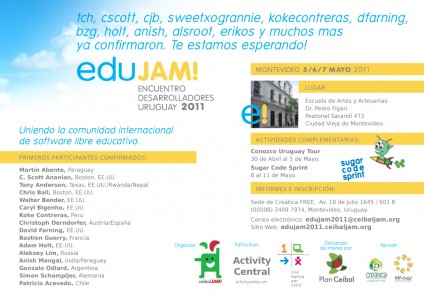Last month, Eugenio Severin and Christine Capota recently published a report for the IDB, analyze 1-to-1 laptop programs across Latin America and the Caribbean. They considered models for success and cost of ownership over the duration of a program, and looked at both OLPC and other 1-to-1 programs. They share a few broad recommendations for such programs:
Focus on the student and learning results. Consider One-to-One as the relationship between a child and learning, mediated by technology among other factors
Consider infrastructure, digital content, teacher training/support, community involvement, and policy
Consider both initial investment and long-term sustainability
Emphasize the role of monitoring and rigorous evaluations
OLPC has focused largely on supporting the first three points, with the fourth often left in the hands of our national partners (though we offer advice when asked). Over the past year, we have put more energy into supporting evaluations, compiling a list of OLPC research papers and publishing an overview of recent evaluations.
It’s natural for organizations like IDB that carry out and rely on monitoring to encourage and emphasize this. I find it a pity that few of the evaluations included in our overview published their raw data, or were carried out in a way that allowed their work to be directly compared to or combined with similar work in other regions.
To these researchers and others: I would love to see a nuanced discussion about what sorts of things can and should be monitored, what rigor and consistency mean across geography and time, and how data can be shared across [research] projects. Please help make this investment in monitoring improve our understanding of education and societal change, and not simply produce a (gameable) point-evaluation of the success of a policy decision.
I also hope to see a similar analysis for programs across the Mideast and Africa. The OLPC Rwanda program is being studied at the moment, but OLPC projects in http://wiki.laptop.org/images/2/24/OLPCF_M%26E_Publication.pdfEthiopia and Gaza are two of my favorite deployments worldwide — both have great insight to offer in organizing a successful locally-supported and sustainable project.


